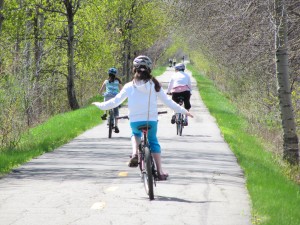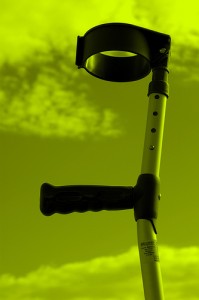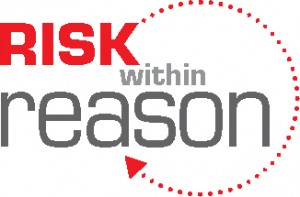It’s been an entire year since I sat down at my computer, stared out the window into the back garden and thought “I’m going to start a blog today.”
A lot of topic ideas had been churning around in my head, borne out of my different experiences: raising three tween and pre-teen daughters, teaching about youth, media and popular culture at Concordia University, doing research on teen high-risk issues at McGill and writing about parenting for Montreal Families Magazine. I wanted a place where I could write informally and speak directly to my readers. A place where I could quickly put out short bits information on articles or papers that got me thinking. A space to be creative in a non-fiction kind of way.
I wish I could say I plotted out my ideas on some spreadsheet, or drew up a business plan, or made sure I had several blog posts in draft form at all times. But I didn’t. I just down and wrote my first post. Just like that.
The blog that became the RiskWithinReason website that grew into a consulting business just sort of grew organically over time. Friends offered advice and encouragement. Montreal Families Magazine picked it up as a featured blog. A wonderful new friend helped me import the WordPress archive into a self-hosted website (thank you again Michelle Skamene!). And I began to get more and more calls to do workshops on topics of importance to me: preventing high-risk behaviours, keeping kids safe online, bullying prevention.
I’m so proud of the way RiskWithinReason has grown this year. And it’s clear I have my readers to thank – most of my traffic comes from Facebook, Twitter and forum shares. I feel a twinge of pride and gratitude from every subscription, share notification, comment, email and workshop request that comes my way. Thank you. Thank you. Thank you. I mean it. Please keep them coming!
And finally, to mark the very first anniversary of RiskWithinReason, the following is a list of the five most popular blog posts I’ve published. If you’d like to read the full post, click on the link in the title:
-1- Never touch a wet butterfly: Dr. JoAnn Deak on girls, self-esteem & intelligence:
When a butterfly first pokes through the shell of its chrysalis, its wings are wet. The arduous physical transformation from a caterpillar leaves it temporarily vulnerable to the waiting world, not-quite-a-butterfly until it dries off and flies away. We are warned never to touch this beautiful creature in this most fragile state, for its wings will be permanently ruined, and it will never learn to fly.
-2- Bullying: Some New facts and Figures
There’s a lot of information in the media and on the social web about bullying, but it’s hard to get a sense of what the facts are. Is bullying really an epidemic? Is it a growing problem, or simply and old problem gaining new, widespread recognition? How is bullying today different than it used to be?
-3- Teaching kids good coping strategies to build resilience
Why do some kids grow up in two-parent homes with all the apparent support and advantages a child could need, yet still end up making poor choices that lead them to problems with drugs, alcohol or other high-risk behaviors? Conversely, why do some kids come from broken homes, dysfunctional families or communities dealing with alcohol and drugs, and yet are still able to resist the pull of these activities?
-4- Alone together: How technology competes for our attention (and wins)
You know that moment when our children pour out of school at pickup looking for their parents? How they scan the crowd to make eye contact with the mom or dad who actually made the trip to school to collect them? According to MIT Professor Sherry Turkle, today’s children are just as accustomed to seeing the top of their parents’ heads, staring down at their Blackberries or iPhones. We are there waiting for them, but our minds are somewhere else.
Ever wonder what you might say to your younger self, if only you could pass on the wisdom you’ve accumulated throughout your teens, twenties, thirties or beyond?
This isn’t the same thing as writing out a mini-lecture to your own kids, full of rules, warnings and admonishments. It’s about taking the time to think through the hard lessons learned through experience, the insights gleaned from our regrets, the pride in choices well made or effort exerted. It occurred to me that this was a worthwhile exercise for anyone, parent or not, who worked with kids. You might also learn something about yourself.
And although they didn’t make it into the top 5 on traffic stats alone, the following are some of my favourite posts from the past year:
A group of women saved my life
It’s almost twelve years now since I met the group of women who saved my life.
My world had imploded with both good things and bad. My husband and I had these brand-new, impossibly tiny, bald, newborn twin girls, born three weeks early but miraculously healthy, and we were struggling to get from hour to hour through each day and night. We were managing on a very modest single salary while I tried to finish a doctoral thesis that would take me another four years to get done.
Pushing my kids off the platform into thin air
We spent a lovely family weekend at the Smuggler’s Notch Family Resort in Vermont. I was there for a Saturday a.m. blogging conference (at which I learned how little I actually know), but it was also a (generously comped) opportunity for Martin and I to spend some quality together time with our kids. Our older daughters are graduating from elementary school tomorrow (how did that happen so fast?), and about to turn 12 this summer. We’ve become aware that all too soon they will rather do something (anything) with their friends than spend a weekend with us, and we want to squeeze out every moment possible before they do.
Proud to be the meanest mom in the whole world
That’s me.
At least according to every one of my daughters at off moments in our relationships. Like when I take away their iPads while they are supposed to be doing homework or walking the dog. When I find them Skyping at 11 p.m. when they were supposed to be asleep. When I react angrily to disrespect. Or when I forbid clothing I deem inappropriate for a 12-year-old.
Learn to value your emptiness: Scott Fried on the secret lives of tweens
“How was your day?”
“Fine.”
“What did you do?”
“Nothing.”
Sound familiar? How often have you tried to get some information from your tween or teen about their day, or their math test, or a fight with their friend and found yourself facing a figurative brick wall.
Holidays with your tween/teen: a different kind of magic
They don’t believe in Santa anymore. They don’t fill Christmas wish lists with requests for ponies or pogo sticks or Easy Bake Ovens. They don’t wake us up at the crack of dawn to open the pillowcase of presents on their beds, or rush downstairs to see if Santa ate the cookies they’d left for him. They don’t cram their mouths full of chocolate Chanukah gelt or spend hours playing dreidel games on the kitchen floor while I fry up the latkes.




